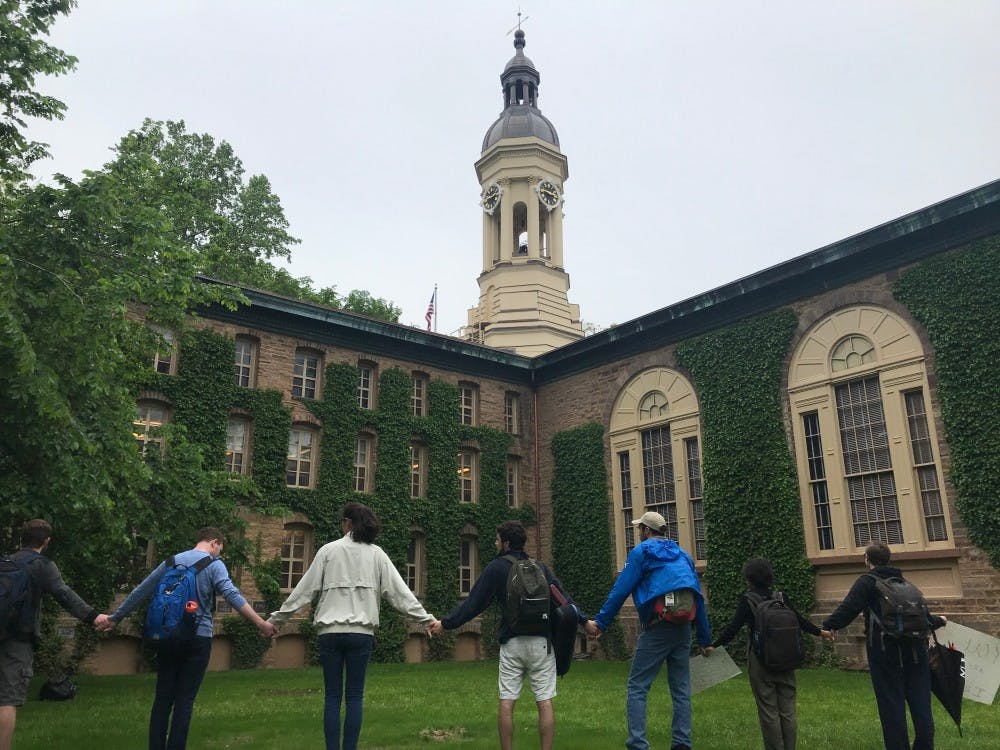As an incoming first-year student, I took part in the University’s sexual misconduct prevention program, “Not Anymore!”, an online course required for all new students. The approximately three-hour long online program was thorough and addressed definitions and boundaries in sexual misconduct, incorporating videos, scenarios, survivor stories, quizzes, and legal definitions.
While the program was far more comprehensive than any other sexual misconduct course I had been through, the course could have been easily completed for a passing grade or even ignored. I remember many of my peers complaining about its length and how it made them grow weary and unfocused. I can fearfully imagine that disinterest in the course is only compounded by the fact that we will be fully online this fall, even though sexual harassment and assault for college students can remain an issue.
Troublingly, on the course website, it is noted that the program helps schools “meet Title IX education and VAWA requirements.” This sends a bad signal. Too much of sexual misconduct education is focused on fulfilling legal obligations, rather than actually preventing sexual misconduct. Meaningful education could potentially make a difference, but symbolic or ineffective education may cause more harm than good. Princeton recently announced a novel University Sexual Misconduct policy to compensate for areas that are neglected by the reformed federal Title IX policies. In keeping with these updates, the University should revisit how it pursues its sexual misconduct prevention education.
Instead of long courses laden with videos and assessments, small group discussions can be helpful in increasing student engagement with the material. In my experience, settings of 10 or fewer students can be helpful in fostering attentive and thoughtful insights from all individuals. Engaged individuals can ultimately stimulate inclusivity and growth, allowing for more productive discourse than a one-sided lecture.
Diversifying the staff involved in instruction can also generate powerful discussions. This could mean hiring instructors from different ethnicities, cultures, genders, and sexual orientations. By introducing individuals from various backgrounds, the audience could see the depth and reach of sexual misconduct and how it is an issue in many different communities. In addition, expanding the staff to include trained students could increase the chances for more effective and personal dialogue. Peer instruction can increase comfort, which may lead to more engaging discourse.
Change is also necessary in expanding the reach of sexual assault education off campus. The #MeToo movement made vital strides in dissipating the perceived shame around sexual assault, but more has to be done to prevent future injustice. In addition to preventing bystander behavior and developing self-defense capacities, we must also address the roots of sexually abusive behavior. While sexually abusive behavior can come from a variety of different factors, tackling the harmful implications of underlying causes like toxic masculinity, low self-esteem, instability, and mental health can all help prevent potential perpetrators from committing sexual assault.
In a world where 23.1 percent of female students, 5.4 percent of male students, and 21 percent of TGQN (transgender, genderqueer, and non-conforming) students experience sexual assault on a college campus, it is clear that more must be done to address sexual misconduct. While legal enforcement is crucial, proactive prevention must come first. Support systems, like SHARE, are integral for survivors, but the goal should be to avoid harm in the first place.
Princeton, as a leader in the world of education, must step up and look at revising its sexual misconduct program. A lack of resources cannot be an excuse. The issue of sexual harassment demands investment not because of publicity or legality, but simply because it inflicts harm on members of our community.
No longer can we remain content with the state of prevention today; in the words of the University’s own prevention education: Not Anymore.
Won-Jae Chang is an incoming first-year student from Seoul, South Korea. He can be reached at wonjaec@princeton.edu.









